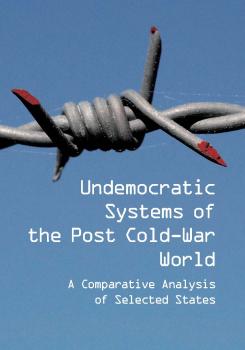Undemocratic Systems of the Post Cold-War World: A Comparative Analysis of Selected States
Streszczenie
The Cold War was not just a rivalry between the Soviet Union and the United States, but a clash of two influential ideologies affecting the political system in the context of both domestic and foreign policy. During the period of intense international tension underlying the bipolar system, the methods of attack included all range of offensives which contributed to the emergence of isolationistic, anti-imperial or revisionist, and mostly undemocratic tendencies in Russia, Cuba, Iran and North Korea, states located in different regions of the world. The regimes emerged after or survived the end of the Cold War in 1991 and provided the basis for the rise of new autocracies that, regardless of the nature of their rule, play an integral role in today’s global international system ideologically dominated by Western neoliberal values.
Rozdziały
-
SPIS TREŚCI
-
Introduction .......... 7
-
CHAPTER ONE: The Republic of Cuba .......... 11
-
CHAPTER TWO: The Democratic People’s Republic of Korea .......... 35
-
CHAPTER THREE: The Islamic Republic of Iran .......... 59
-
CHAPTER FOUR: The Russian Federation .......... 85
-
CHAPTER FIVE: Rogue States. An Analysis of Undemocratic States in the Contemporary International System .......... 111
-
CHAPTER SIX: Comparative Analysis .......... 139
Downloads
Bibliografia





